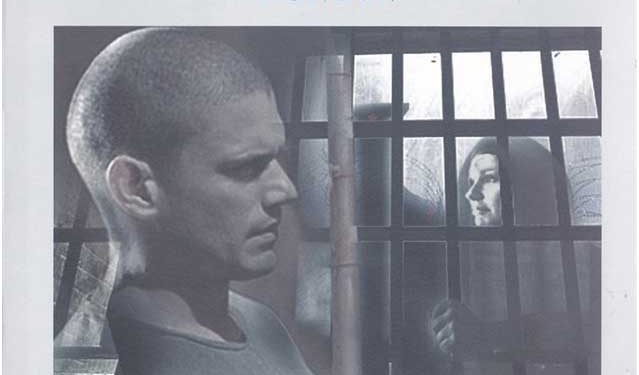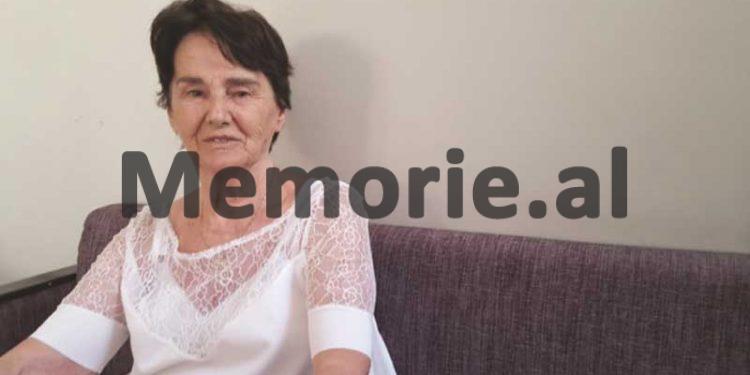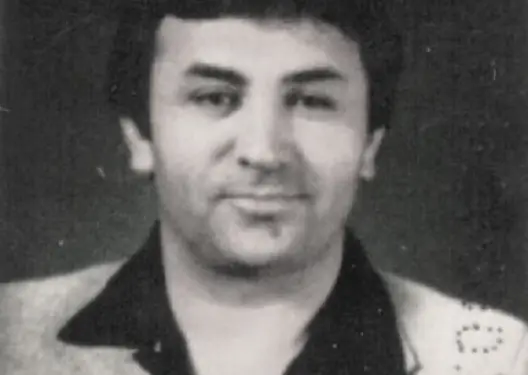Memorie.al/ 81-year-old Hysen Tabaku, or Ceni, as he is known differently from his family and all his friends, with American citizenship, who fled Albania in 1975, tells for the first time for “Gazeta Shqiptare”, his and his family’s history. , since the imprisonment of their father and mother, the torture of them until they showed their gold, the internment of their family and their suffering in the village of Baldushk in Tirana, the death of their parents and their tragic burial in the backyard, the escape of their sister to Yugoslavia in in 1956, the escape of Ceni himself in 1975, after he had made the first prison, the consequences that fell on his wife and the two sons he left in Tirana, the escape of his brother Engjëlli, a year later, the escape of his other brother, Ylli from prison of Fushë-Krujë and his 28 years in prison and up to Cen’s life in the US, where he was helped to stabilize by his former close friend, Xhevdet Mustafa.
continued from the previous issue
Today, in the last part, Hysen Tabaku testifies about his vicissitudes in the former Yugoslavia and how he managed to gain political asylum from Italy to the USA, where he helped him stabilize with work, his former youth friend, Xhevdet Mustafa. Why did Ceni reject the escape plan with Xhevdet in 1961 and who are the Albanian intelligence characters operating in the USA, which he has treated in his book, “Communist Dream”…?!
How long did you stay in Yugoslavia?
I stayed there for five months.
In the camp?
Look, I was released, the Yugoslavs granted me political asylum, because they were convinced and accepted that I was a fugitive and not sent by the State Security. They had their secret channels that went through the needle hole to anyone who crossed the border and you could not easily throw them. The sister I had in Yugoslavia since 1956 was my guarantor and supporter. We initially sought political asylum in Kosovo, where my sister was, but the Kosovo UDB authorities did not accept us. Probably because we went to the Montenegrin Ministry of Interior in Podgorica, which was called Titograd at the time. A very big starter came out there, who told us that we would stay in Yugoslavia. In April, I ran away again, escaped for a second, and went to Italy. I traveled by train; it was adventure. But the Yugoslavs captured us once again and unfortunately, the one who captured us was a Kosovar soldier, who told us: “Aman more, if I had known that you are Albanian, I would have let you leave.” “Aman,” we told him, “do not take us only to Albania, but keep us here as long as you want, there is nothing, we are also in prison here.” They kept us in prison for a few days and then an officer came and told us he would take us to Trieste, telling us: “Be careful, do not say anything because we have passed you.” They told us that down the road, a sea bus was coming. We stopped that bus and with a lame Italian we said: “You will take us to the Police Station. “Okay,” he told us, and with all the passengers and the whole bus he took us to the door of the police station. There another process began, and we were taken to a camp in Trieste. Our documents were reviewed by the Geneva Commission for Human Rights. They were mostly Italians and Americans. There I later became acquainted with a girl and some other friends. I went to Rome because I did not want to live in a camp. There was a church called the ‘World Church’, and they assigned me to a paid job as a political immigrant. Likewise, I was found living in a flat and later I started working as a welder. I did not get paid and worked other jobs, but I stayed there for two years and it was the most beautiful period of my life until then, as I enjoyed my personal freedom. A real freedom and I was satisfied and calmed by the fact that I was not afraid that I was being monitored. I felt so liberated that I really enjoyed that two-year period…
When did you leave for the US?
In October 1977 I gained political asylum and went to the US. A close friend of mine sent me the documents and the guarantee to go and live in his house. His name is very well known because of the adventure he made in Albania in September 1982. His name was Xhevdet Mustafa. He has been a close friend of mine and has helped me a lot at the time. I lived for some time at his house, where he had a large car service and also worked as a sheet metal worker. I worked there for 5-6 months and then left, settling in my house. Then like all American citizens.
How and under what circumstances did you meet Xhevdet Mustafa?
In Albania, Xhevdeti was in prison with my brother, the Angel, and from this fact, I also got to know him. Before fleeing, Xhevdet proposed to me to go with him to Yugoslavia. I saw the shoes he wore, Czechoslovakian shoes, they told him then, and I said to him: “Are you going to go there with these shoes? “Yes,” he told me, “but I told him; “No, I’m not coming. “Well,” he told me, “as you wish.” He had really had it, but I remembered he was joking. When I escaped and went to Ulcinj, I connected with him and he started helping me with money and things that are very personal and of no interest to the public. Xhevdet was a very good guy, very family oriented, regular and quite hardworking. Above all, he had a great heart and helped many Albanians, known and unknown. He had Zogist convictions, he told me this himself, I even know that he was at the wedding of King Leka Zogu, in Spain if I am not mistaken. Xhevdeti also showed me the photos he had taken with King Leka at his wedding.
How did your life go after that in the USA, but with your family that you had left in Albania, did you communicate, did you have any connection with letters?
I am first telling you about my family that I left in Albania. The wife and two sons, of course, had persecutions and were treated very badly by the regime, suffering up to the bread of the mouth. The woman was initially fired and among the people found at the time to help her was the wife of the famous writer, Sulejman Mato, whom she had a close work and life companion. I take this opportunity to thank that noble family for the help they gave to my family that I left at that time. I communicated by letter with the wife and sent dollars to her and the two boys, roughly a small monthly salary, which at the time were not small. But I never forgot my family in Albania. So, in September of 1990, when things were starting to change for the better, I made the guarantee to my eldest son, Tony, and he came to the US. I went and met him in Budapest. He now lives in Las Vegas and has set up his own business and is doing quite well from the economic situation. While the other son, Endry, came to the US in 1994. He also started his family by marrying an Albanian girl, they have two children and are very well off. So, me and my two sons have preserved the family tradition and married Albanian women.
Before I ask you how your life in the US went, I wanted to ask you who left your family in Albania?
Mother and father, as I told you a little above, died in exile in the village of Baldushk and in Albania remained three of the sisters (one was married in Kosovo and was abroad) and brother Ylli, who was in prison and suffered for 28 years. He was also sentenced so much for the fact that he was re-sentenced to prison, after he tried to escape from the prison of the Cement factory in Fushë-Krujë, where he was caught far away in the fields after he had been injured before. While the other brother, Engjëlli, after having served 5 years in political prison, a year later, in 1976, fled Albania, exactly in the same place where I had fled to the Buna Coast.
Returning to you, how is your life in the US?
Although we hoped that one day communism in Albania would fall, again that day seemed far away and we did not think it would come as soon as it came. Under these conditions, I remarried in the US to an Albanian girl and started a new family. Gerta Qosja, my wife is called, here she is with me and we have two daughters Sabrije and Kimberlyt.
Where is Gerta from and under what circumstances was she in the US at the time?
Gerta’s mother is from Durrës. I am also from Durrës, because I was born in Durrës, despite the fact that I lived in Tirana. My family has lived in Durrës for a long time and we have been neighbors with Greta’s family. While my father, Ramazan Tabaku, had a working relationship with her father, Ramazan Qosen, as a merchant and as a neighbor as well. When Gerta’s father, Ramazan, was little 6-7 years old, my mother would hold him and wash him and put him to bed at night to sleep with the other children. He had grown up with us. When I went to the US, his family there told me that you would meet our daughter. I did not have time and I told them that when I come to meet you, I will know him too. One day Gerta’s mother calls me and tells me to go to dinner with them. I went because I did not have a job. I went and waited by bus that it was a couple of hours away. This came with a sports car, dressed in a beautiful fur coat and I said: “what is this Italian” that I was a young boy, he had other pleasures. She passed by like this once by car and came back waving ‘you?’ There we met and after some time we got married with all the Albanian rules and customs, as both our families have been known since Durrës in the years of the Zog Monarchy and have continued the friendship between them until the communists came to power. , when we were imprisoned and interned.
Mr. Hysen, we are addressing and asking Gerta herself to tell us something about her family and how did they manage to escape from Albania?
Gerta Qosja: My father’s family, Qosja, is a Tirana family, while my mother is from Durrës. My father spent two and a half years in prison, after communism came here (1945-1947) until he showed where he had his wealth and gold, that he was a rich merchant. When he was released from prison, one of the officers there who knew him told him that they would kill him. So, he decided to run away. He wanted to take his mother with him, but she did not leave without the children, it was me and my younger sister. She was 8 months old while I was 3 years old. The father finally decided to take me, but not the sister.
When and where did you escape?
In 1950 from Lake Shkodra to Yugoslavia. We stayed there for almost a year in Sarajevo, in a refugee camp. From there, we went to Trieste in Italy, back to the camp and then settled in Rome, where we stayed for 6 and a half years waiting for Albania to open and return.
How to open Albania?
Yes, communism would go bankrupt and fall. We waited another 6 months, another 6 months, because I remember that as a child. Because news came that the communists would stay in power for another 6 months. These were the hopes that our family felt from talking to friends, that in Rome we had friendships with many Albanians who had fled and all nurtured these hopes. So, we waited for 6 and a half years and the roads were not opened, and at that time the guarantee for America came to us. In 1956 we went to the US as political immigrants. I was 9 years old. The plane we came to the US was small and filled only with Albanians, immigrants like us.
Do you remember who they were?
It was Ramazan Turdiu, Sali Toptani with whom we have always been friends, Vasil Andoni, who was with the ballistas and many others who knew their parents, that I was small. They first moved to New Jersey, where their parents began working. The father worked at night, the mother during the day, and so they met occasionally. I started school. We have lived a comfortable life there, although we have always helped the people in Albania, because given the great poverty that reigned here at that time, we always sent package after package.
But how did your little sister stay here?
The sister stayed with her grandmother and uncles and aunts, because there were a lot of people at home from my father. In the 1990s we got it in America, that of many other families.
At the end of this long interview, to close, we are returning to Mr. Hysen. You have published a voluminous novel entitled ‘Communist Dream’. What messages do you send there for your compatriots?
My main goal with the book is only about the rapprochement between different layers of the population, but the elimination of prejudices, that this is Cham, the Kosovar, this is Tropojan and the one from Konispoli. I ask for the brotherhood of all the people, and to move forward towards the new horizons that political life opens with democracy in Albania. There are State Security characters in the book and it shows how they worked in foreign countries, what are their elements, etc., etc., which are more or less real data. Let us not use a vulgar word ‘spies’, as it has been an intelligence activity and they have been paid. The spies are volunteers, which is surprising. They were extremely cultured and polite discoverers. They attended classical music, knew foreign languages, but still had the red star in their minds and hearts. But my book “Communist Dream” has been misunderstood by various people and they have expressed their misunderstanding to me, but if you read it carefully, everything becomes clear. So that the communist dream was simply a utopia and a great disappointment. Among other things in my book, I ask that we never forget. What has happened and what has been done is not undone, therefore the best and most logical solution for the man and for our present and new society, not the “New Man” that was propagated for half a century by the communist regime of Enver Hoxha , that he turned out bad to us, was defective. The proof of communism was scarcity that did terrible damage to Albania. I do not believe that today’s Albanians do not try to fraternize with each other. It has nothing to do with the fact that he was a security guard, a criminal, a policeman, a guard, a worker, etc., he was a man with a brainwashed mind, a man who was culturally incapable of perceiving and seeing him. the truth of where we are. They did not know where this path to socialism leads. We hovered around a whirlpool of utopias. We must forgive and not forget. I am an American citizen and I am very proud of this fact, but Albania is my country and I love it more. Whenever I think of Albania, I think of my mother. I live in Florida, I follow American politics and in the election campaigns I have helped and are helping the Republicans of George W. Bush, but I read the newspapers and everything I can about Albania. I do not forget for a moment Albania and my mother’s grave.
Hysen and Mrs. Gerta, thank you for your interview.
We also thank you very much and through you the “Memory” portal.













